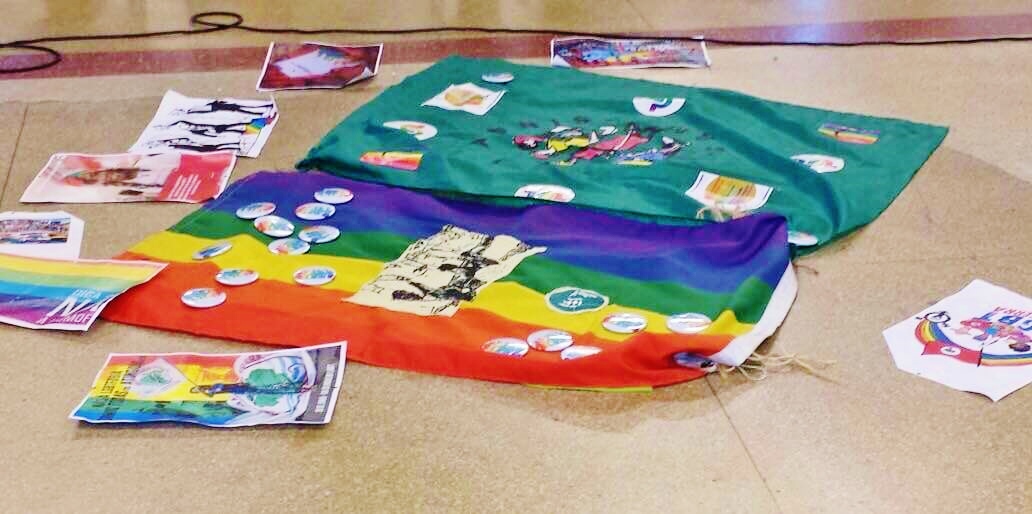La Via Campesina peasants initiate debate on gender and sexual orientation diversity in the movement

For the first time in the history of La Via Campesina, LGBTI*[1] individuals and sympathizers have opened an international debate about gender and sexual diversity. The discussion formally began in a self-organized side meeting during the movement´s VII International Conference last month (July) in Derio, Basque Country. About 50 people from La Via Campesina’s member organizations and allies, representing all continents, gathered on Thursday, July 20th. In an open space, they initiated a debate and shared ideas on how to raise the issue of sexual and gender diversity, a topic which is relevant to the peasant movement and rural areas throughout the world.
“This is a reality and we, as La Via Campesina, should not close our eyes to it. Many people in the countryside are killed for being of a different sexual orientation [than the ones represented in the heteronormativemodel]. We need to include this in our debates and take a political position in support of LGBTI* comrades”, said one participant in the meeting.
Those attending the meeting were told that, although not yet officially included in La Via Campesina´s political agenda and strategies, there has been some progress in this regard. As one participant explained, for the first time in La Via Campesina, the registration form for this VII conference allowed delegates to openly indicate their gender and sexual identity. “It may seem insignificant, but it represents great progress and it was amazing to see people expressing their gender differently”, said this participant.
The participants of this meeting brainstormed ideas on how to ensure that this issue is considered in future spaces and political debates within Via Campesina and with allies, while acknowledging the fact that this might not be an easy debate in all regions.
Some members of Via Campesina, such as the Landless Movement of Brazil (MST), the Sindicato Labrego Galego (SLG), as well as the European Coordination Via Campesina, have already initiated this debate within their own organizations. In the case of the MST, this includes the production of training materials for education and reflection within the movement. The MST training booklet states that “the issue of sexual diversity and the process of self-organizing of our LGBT militancy is a fundamental part of our project of emancipation”.
LGBTI* actors from different regions also jointly organized an exhibition tent during the 7th Conference. They presented materials that have been produced at the local and regional levels, as well as images of actions already taken. Throughout the conference LGBTI* actors and sympathizers were wearing a very visible button showing peasants in rainbow colors, a symbol of sexual and gender diversity. Also in the march on July23rd in Bilbao there were many participants of the conference who painted their faces with the colors of the rainbow.
The VII Conference of La Via Campesina allowed LGBTI* individuals to achieve important steps to articulate themselves and to begin a process of visibility, although so far unofficially. In the Euskal Herria Declaration, La Via Campesina affirms its commitment to increase its capacity to understand and create positive environments around gender and sexual diversity and recognizes that “a diverse, non-violent and inclusive countryside is fundamental” for the movement.
[1] LGBTI is an acronym for Lesbian, Gay, Bisexual, Transgender, Transsexuals and Intersex. * refers to all other possible sexualities and genders that do not feel reflected in one of the previous terms.
